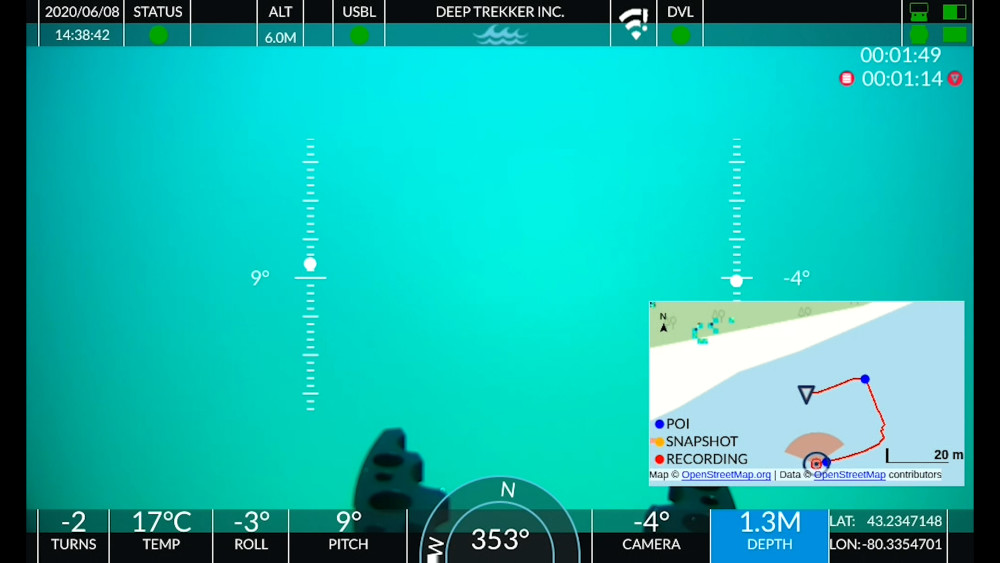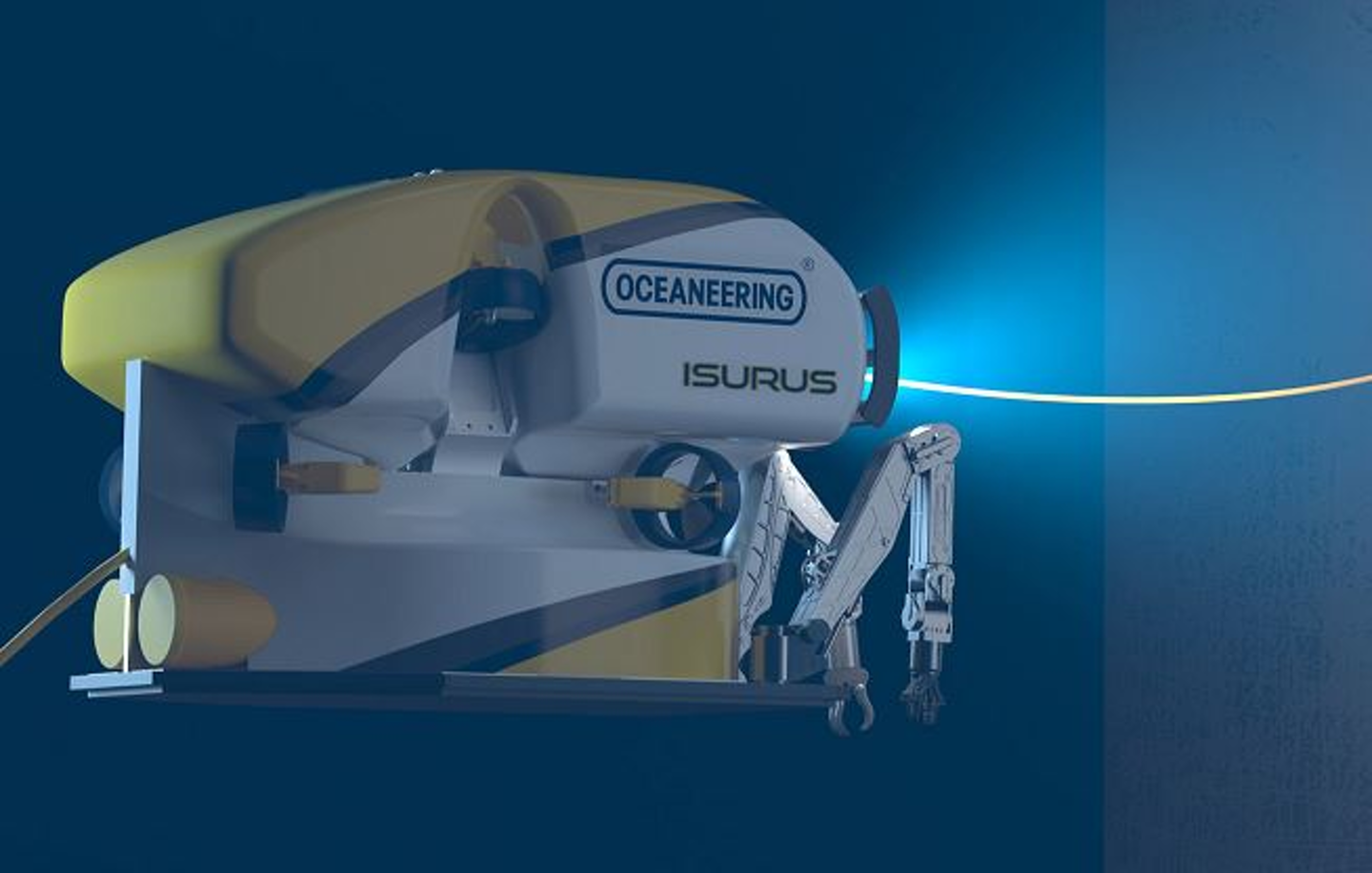Home › Forums › Safety, Survival Courses & Medicals › Offshore Safety/Survival Courses › STCW 95’s
- This topic has 22 replies, 11 voices, and was last updated 14 years, 10 months ago by
James McLauchlan.
-
AuthorPosts
-
February 14, 2010 at 6:16 am #3313
R2D2
ParticipantROVworld Admin note:
STCW is an International convention on (Standards of Training, Certification and Watchkeeping for Seafarers)
It is basically an offshore survival course for mariners, with a bit tacked onto the end on how to be a nice safe seaman.
It consists of 4 modules:
1) Elementary First Aid course
2) Personal Survival course
3) Elementary Fire Fighting and Fire Prevention course
4) Personal Safety & Social Responsibilities courseThese qualifications are required by most professional seafarers, who must be trained in accordance with the STCW 95 convention.
Note that this course is designed for international marine crew and not those working in the offshore energy sector which, in most parts of the world, has it’s own requirements with regards to offshore survival training requirements.
In November, the prominent company that we were free-lancing for, gave us a clear ultimatum that we had to obtain STCW’s before we could work for them in 2010. No cert’s, no work.
Some of us have already forked out loads of lolly to complete the additional courses. (Until now, none of the other rov companies seem to require the STCW in addition to the BOSIET/HUET.
Now, rumour is that they have no work for us until the 4th quarter of 2010. That’s in about 9 months time.
How’s that for a way to run a company?
Can anyone confirm if there actually IS a move afoot in the industry to insist on STCW’s as well as BOSIET-HUET?
Cheers
February 14, 2010 at 12:20 pm #26358senior
ParticipantI am a freelancer too, I was also approached by an agency for a job of the coast of Ireland, but I was told that the client required myself to have the STC.
I was asked by the agency if I would do the course to gain possible employment, and in the next breath, I was asked if I would lower my day rate by …….£50 😯 😡 . WTF and this was in Q3 last year.I declined and went else where 😀
February 14, 2010 at 1:29 pm #26359Scott Beveridge
ParticipantGet some brass cajones and stand up for you BASIC working rights ESPECIALLY in the N. Sea sector… I mean WTF and PLEASE let it be known throughout the industry the way they tried to F _ _ k you over. It’s getting to a point where we don’t have a leg to stand on anymore be it in the N. Sea or Barmfarqed Eyejipt. In MHO, and sentiments, I feel sorry for you younger guys (a lot)….
February 14, 2010 at 3:49 pm #26360luckyjim37
ParticipantThere does seem to be a move toward the STCW courses. This may well work to our advantage in the long term. It is the only mandatory sea survival course required by the department of transport to work on a vessel. If you hold this certificate as well as a valid ENG 1 and hold a seamans book then you can sign on as ships crew and not as a passenger like you normally do when you are third party. This helps out the companies when you work in places like India where passenger numbers are limited but also if you are crew it makes your positon a lot clearer from a tax point of view.
Also I suppose it probably helps out the shipping companies lowering insurances as everyone onboard would be competent to be there.
If you take a day rate cut from your agency that is your personal choice but lets face it the last three months have been a lot quieter than normal so you do what you have to do to survive these quiet times.
February 14, 2010 at 4:04 pm #26361James McLauchlan
ParticipantCorrect me if I am wrong but isn’t this another BOSIET course without HUET?
BOSIET/HUET appears to be acceptable in pretty much anywhere in the world to work offshore. I’ve worked for years offshore and have not ever needed anything else. Now they are suggesting what? That you need two survival tickets?
Does that mean that companies are expecting people to cough up for two courses that at the end of the day have the same means to an end?
STCW 95 qualifications are required by most professional seafarers, who must be trained in accordance with the STCW 95 convention. The Flying Fish STCW 95 Basic Safety Training course ensures you meet all its requirements.
There are four modules to the STCW 95 Basic Safety Training week:
1. STCW95 Elementary First Aid course – basic, immediate, and emergency response to the most common shipboard injury emergencies, including CPR.
2. STCW95 Personal Survival course – survival suits, hypothermia, liferafts, basic actions in emergency, etc.
3. STCW95 Elementary Fire Fighting and Fire Prevention course – types/classes of fires, prevention, hazard awareness, methods of fire extinguishment, structure of incident response team, appropriate equipment, personal safety, team support, and live exercises.
4. STCW95 Personal Safety & Social Responsibilities course – onboard emergencies, alarms and signals, initial actions, personal and protective safety equipment, pollution effects and pollution prevention, safe working practices, enclosed spaces, prevention of accidents, sexual harassment, individual rights, awareness of drug and alcohol issues, prevention of abuse.
homepage > news > flying fish stcw 95 basic safety training £695 at cowes uk
STCW 95 Basic Safety Training £695STCW 95 Basic Safety Training at Cowes for £695 with free recruitment service
Flying Fish delivers the four elements of STCW 95 Basic Safety Training as a one week course at Cowes in the UK. Flying Fish is approved as a training provider by the UK Maritime & Coastguard Agency (MCA).
regards
James McFebruary 14, 2010 at 4:41 pm #26362R2D2
ParticipantBasically, yes, they are so closely similar, they are almost indistinguishable.
We’ve been shafted (again) because one hand doesn’t know what the other is doing.
February 14, 2010 at 4:42 pm #26363James McLauchlan
ParticipantBasic Training for Seafarers (STCW Table A V1/1)
* Course duration: 5 days (Monday to Friday)
* Course type: STCW 95
* Course fee: £840 – Please note any price changes occur from 01 August 2010Yep – 840 quid at Fleetwood!
http://www.fleetwoodnautical.co.uk/courses?cat=9&type=51Could somebody please name the companies that have asked for this and the reasons they gave as to their client not accepting the BOSIET/HEUT cert.
regards
James McFebruary 14, 2010 at 9:26 pm #26364Glevum
ParticipantI did a one day course at Warsash a few years ago it was
PERSONAL SURVIVAL TECHNIQUES (STCW 95 A-VI/1-1)
It is required by two of the companies I work for (non oil & gas).
I hold a discharge book and ENG1 and as Lucky Jim says I sign on articles as crew when working for these two companies.
I don’t think you need the 5 day course to meet the MCA requirements.
The one day course is £195 now.
February 14, 2010 at 10:42 pm #26365James McLauchlan
ParticipantI did a one day course at Warsash a few years ago it was
Given that this is an international website….. are you referring to:
Warsash Maritime Academy (formerly Warsash Maritime Centre)
A maritime training college and is part of Southampton Solent University?February 15, 2010 at 12:18 am #26366Glevum
ParticipantYes, that Warsash.
February 15, 2010 at 12:18 pm #26367James McLauchlan
ParticipantCheers :tup:
February 16, 2010 at 7:54 am #26368rovnumpty
ParticipantGents
I reckon this will probably be some back door method for getting you into certain countries to work, without the company having to fork out for a proper work visa.
They may be able to pass you off as ‘ships crew in transit’ with this cert.
February 16, 2010 at 10:40 am #26369James McLauchlan
ParticipantThe course is for seafarers!
Does this mean that ROV is gradually becoming a marine trade and that ROV courses will be held at Marine colleges instead of ROV training schools?
A few thoughts on this (without first researching facts)
I’m also beginning to wonder of this is being driven by the offshore wind farm type vessels/operations? Whereby they are not operating in the oil and gas industry but are operating offshore but might need to prove to their clients that their workers meet the requirements of working on vessels offshore and meet international marine regulations.
Clients that work in the wind farm energy business may not have even heard of the O&G offshore survival or feel that it may not legally apply to their line of work.In November, the prominent company that we were free-lancing for
‘Prominent company’ gives us nothing…. no company, no location…..
You are allowed to mention company names on here, that includes agencies, and should do so quite freely.
THe only thing I suggest is avoid mentioning employees of those organisations by name as they may not be members of this forum and unable to respond.No disrespect to those that have been asked for an STCW, but without any specific companies being named and job types/locations being mentioned this is turning into more into a lot if guesswork and surmising rather than us knowing what is bringing this about and how to approach it. Hence us bounding ideas around.
regards
James McFebruary 17, 2010 at 8:34 pm #26370R2D2
ParticipantThanks,
btw; Allseas ~ International pipelay and supporting vessels.
I think Luckyjim37 has summed it up pretty well and eases the pain a little.
Cheers.
February 18, 2010 at 12:24 am #26371Sit Rep
ParticipantThe course is for seafarers!
Does this mean that ROV is gradually becoming a marine trade and that ROV courses will be held at Marine colleges instead of ROV training schools?
In Australia, at least, both institutions that provide ROV courses are "Maritime Technical Colleges" both Fremantle TAFE and the Australian Maritime College in Launceston.
Personally I have had to undergo STCW95 training, in order to work offshore in Brazil. This was at least ten years ago and I already had a HUET/BOSIET. In my opinion at that time it was just another way to get some money into the local economy, the standard of training was quite laughable really…
-
AuthorPosts
- You must be logged in to reply to this topic.



